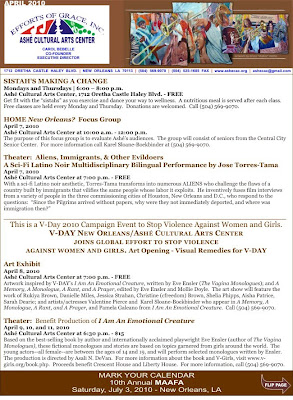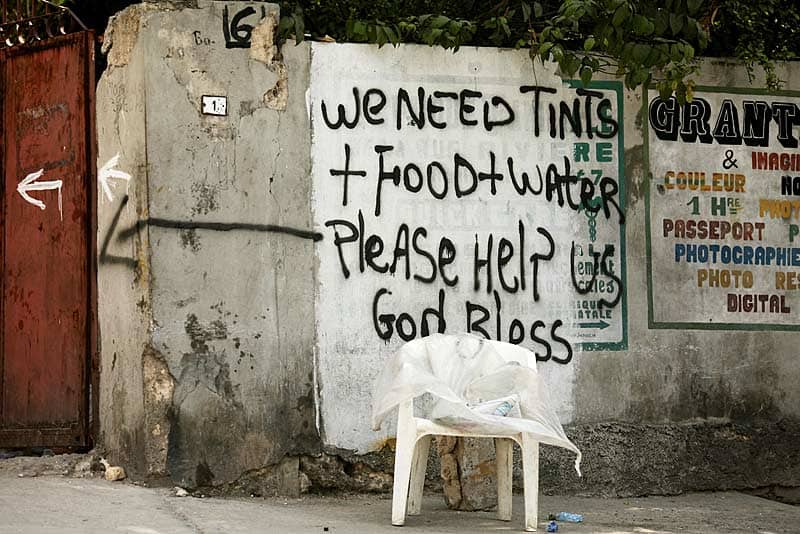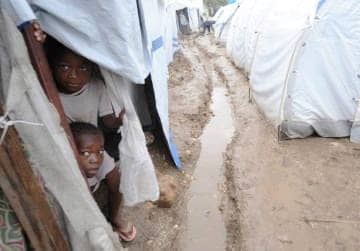ALIENS, IMMIGRANTS & OTHER EVILDOERS
April 7, 2010
Ashé Cultural Arts Center
1712 Oretha Castle Haley Blvd., New Orleans
FREEJosé Torres-Tama Receives 2010 NPN Creation Fund Award
for the Commission of a New Performance Called
ALIENS, IMMIGRANTS & OTHER EVILDOERSWHAT: 2010 NPN Creation Fund Award of $12,000 for ALIENS
WHEN & WHERE: Research & Performances begin March – April in the three Commissioning Theatres: MECA in Houston, the Ashé Cultural Arts Center in New Orleans (1712 Oretha Castle Haley Blvd.) and GALA Hispanic Theatre in Washington, D.C.
New Orleans multidisciplinary visual and performance artist José Torres-Tama has received a National Performance Network Creation Fund Award for the commissioning of a new performance theater piece called ALIENS, IMMIGRANTS & OTHER EVILDOERS, which explores the rise in hate crimes against Latinos and the criminalization of immigrants across the country. The $12,000.00 award will fund the development of ALIENS at the three cities of the commissioning partners.
The commissioning theatres are MECA in Houston, GALA Hispanic Theatre in Washington, D.C., and the Ashé Cultural Arts Center in New Orleans. From March 22 through April 30, Torres-Tama will begin the creation process, and he will visit each city to research how the immigration debate is perceived. Working with a local filmmaker in all three cities, he will interview members of the general public on the streets and ask the questions: "Since the Pilgrims arrived without papers, why were they not immediately deported, and where were was immigration then?” Some responses will be inventively fused into short film excerpts that drive the performance narrative. Also, he will perform a work-in-progress version of ALIENS in each city during the creation process to serve as a catalyst for community input on the immigration issue.
ALIENS will be performed with a sci-fi Latino noir aesthetic, bilingual texts, and multimedia staging strategies. Appropriating the sci-fi look of the film The Matrix, Torres-Tama transforms and shape-shifts into numerous Latino "aliens" who challenge the flaws of a country built by immigrants that vilifies the same people whose labor it exploits. One exaggerated character is “El Bravo”, an immigrant superhero who battles bilingually challenged minutemen at the border and outs hypocritical politicians who stump against undocumented immigrants while hiring “illegal aliens” to literally do their dirty laundry, watch their kids, and clean their houses.
“Receiving the NPN Creation Fund Award is the highest honor I have received to for my performance work, and it marks the first time I have commissioning funds to assist with the creation of a new piece,” states Torres-Tama.
Ashé Cultural Arts Center in New Orleans:
ALIENS unplugged performance Wednesday, April 7, 2010 @ 7PM FREE
Creation process residency & filming interviews around New Orleans from April 5-9GALA Hispanic Theatre in Washington, D.C.:
ALIENS unplugged performance Monday, April 26, 2010 @ 7PM
Creation process residency & filming interviews around D.C. from April 24-28ALIENS WORK-IN-PROGRESS PERFORMANCES
at Ashé from May 13-15, 2010 @ 8PM
ALIENS FULL DEBUT PERFORMANCES:
ALIENS performances in New Orleans September 16- 18 & 23-25
ALIENS performances in Houston October 15-16
ALIENS performances in Washington, D.C. April 2011 TBAAbout the artist: José Torres-Tama is an award-winning interdisciplinary artist working in poetry/fiction, visual art, and performance art. For twenty years, he has worked in the New Orleans arts community, and since 1995, he has toured nationally and internationally with his multimedia performances. A Louisiana Theater Fellow and NEA award recipient, his critically acclaimed post-Katrina solo, The Cone of Uncertainty, documented his dramatic escape on a stolen school bus after the levees breached. After four years of touring The Cone nationally, he received a 2008/09 Louisiana Division of the Arts Grant to debut the piece in London, Liverpool, and Aberystwyth, Wales, as part of his 2009 international tour profiled in American Theatre’s March ’09 issue. Also, he is the recipient of a 2008 Joan Mitchell Foundation Award for the publication of his first art book titled New Orleans Free People of Color & Their Legacy, which documents his pastel portraits of 19th century Creoles recently exhibited by the Ogden Museum of Southern Art in New Orleans. www.torrestama.com
Torres-Tama is both a versatile writer who can be lyrically evocative as well as bitingly humorous, and an impressive performer. ---The Philadelphia Inquirer
About the National Performance Network (NPN): The NPN is a group of diverse cultural organizations, including artists, working to create meaningful partnerships and to provide leadership that enables the practice and public experience of the arts in the United States. NPN annually leverages $3,000,000 in financial support for the creation and touring of contemporary performance work. The NPN is supported by the Doris Duke Charitable Trust Foundation, the National Endowment for the Arts (a federal agency), the Ford Foundation, the MetLife Foundation, the Nathan Cummings Foundation, the Lambert Foundation, and the Andrew W. Mellon Foundation. The NPN offices are located in New Orleans at 866 Camp Street. www.npnweb.org
Torres-Tama Receives Additional Alternate ROOTS C/APP Award for
ALIENS, IMMIGRANTS & OTHER EVILDORERS
September 2010 Production
at the Ashé Cultural Arts Center in New OrleansIn addition to the NPN Creation Fund, José Torres-Tama has received a grant award from the Atlanta-based arts organization Alternate ROOTS (www.alternateroots.org) for the community outreach portion and production of ALIENS, IMMIGRANTS & OTHER EVILDOERS at the Ashé Cultural Arts Center in New Orleans.
The Community Arts Partnership Project (C/APP) grant award adds $2,500 for the New Orleans debut of ALIENS at the Ashé Cultural Arts Center in September 2010. These funds will be used to reach out to the Latino immigrant community in New Orleans that has been part of the post-Katrina reconstruction. As part of the project, Torres-Tama will document stories concerning the various experiences immigrants have had since the storm.
“The greatest dirty little secret of the reconstruction of New Orleans is that it owes a huge debt to the Latino immigrant labor force brought in to rebuild after the storm, but ‘the city that care forgot’ has never officially cared to acknowledge the contributions made by the thousands of Latino immigrants who have been invaluable to our recovery,” states Torres-Tama.
The New Orleans ALIENS research calls for the artist to interview and film immigrants who have remained and were part of the reconstruction. Some of these stories will be used to inform the ALIENS performance script. In July of 2009, the Southern Poverty Law Center released the analysis of a study that stated that up to 80% of immigrant laborers in post-Katrina New Orleans were cheated out of their pay by ruthless contractors and local businesses.
Torres-Tama has contributed commentaries to NPR’s Latino USA that explore these issues, and he hopes that ALIENS can explore the personal stories of immigrant laborers further.
The national debut of ALIENS at the Ashé Cultural Arts Center takes place in September of 2010, and workshop performances are scheduled for May 13-15. The Ashé Cultural Arts Center is located at 1712 Oretha Castle Haley Blvd in the Central City neighborhood of New Orleans. www.ashecac.org
APRIL 2010 EVENTS AT ASHÉ
SISTAH'S MAKING A CHANGE
Mondays and Thursdays | 6:00 – 8:00 p.m.
Ashé Cultural Arts Center, 1712 Oretha Castle Haley Blvd. - FREE
Get fit with the “sistahs” as you exercise and dance your way to wellness. A nutritious meal is served after each class. Free classes are held every Monday and Thursday. Donations are welcomed. Call (504) 569-9070.HOME New Orleans? Focus Group
April 7, 2010
Ashé Cultural Arts Center at 10:00 a.m. - 12:00 p.m.
The purpose of this focus group is to evaluate Ashé’s audiences. The group will consist of seniors from the Central City Senior Center. For more information call Karel Sloane-Boekbinder at (504) 569-9070.Theater: Aliens, Immigrants, & Other Evildoers
A Sci-Fi Latino Noir Multidisciplinary Bilingual Performance by Jose Torres-Tama
April 7, 2010
Ashé Cultural Arts Center at 7:00 p.m. - FREE
With a sci-fi Latino noir aesthetic, Torres-Tama transforms into numerous ALIENS who challenge the flaws of a country built by immigrants that vilifies the same people whose labor it exploits. He inventively fuses film interviews from a variety of people in the three commissioning cities of Houston, New Orleans and D.C., who respond to the questions: “Since the Pilgrims arrived without papers, why were they not immediately deported, and where was immigration then?”
__________________________________________________________This is a V-Day 2010 Campaign Event to Stop Violence Against Women and Girls.
V-Day New Orleans/Ashé Cultural Arts Center
joins global effort to stop violence
against women and girls. Art Opening - Visual Remedies for V-DAYArt Exhibit
April 8, 2010
Ashé Cultural Arts Center at 7:00 p.m. - FREE
Artwork inspired by V-DAY’s I Am An Emotional Creature, written by Eve Ensler (The Vagina Monologues); and A Memory, A Monologue, A Rant, and A Prayer, edited by Eve Ensler and Mollie Doyle. The art show will feature the work of Rukiya Brown, Danielle Miles, Jessica Strahan, Christine (cfreedom) Brown, Shelia Phipps, Aisha Patrice, Sarah Dearie; and artists/actresses Valentine Pierce and Karel Sloane-Boekbinder who appear in A Memory, A Monologue, A Rant, and A Prayer, and Pamela Galeano from I Am An Emotional Creature. Call (504) 569-9070.Theater: Benefit Production of I Am An Emotional Creature
April 9, 10, and 11, 2010
Ashé Cultural Arts Center at 6:30 p.m. - $15
Based on the best-selling book by author and internationally acclaimed playwright Eve Ensler (author of The Vagina Monologues), these fictional monologues and stories are based on topics garnered from girls around the world. The young actors--all female--are between the ages of 14 and 19, and will perform selected monologues written by Ensler. The production is directed by Asali N. DeVan. For more information about the book and V-Girls, visit www.v-girls.org/book.php. Proceeds benefit Crescent House and Liberty House. For more information, call (504) 569-9070.
April ContinuedTheater:
Benefit Production of A Memory, A Monologue, A Rant and A Prayer: Writings to Stop Violence Against Women and Girls
April 9, 10, and 11, 2010
Ashé Cultural Arts Center at 8:30 p.m. - $15
This is “a groundbreaking collection of monologues by world-renowned authors and playwrights, edited by Eve Ensler (author of The Vagina Monologues) and Mollie Doyle. These diverse voices rise up in a collective roar to break open, expose, and examine the insidiousness of violence at all levels: brutality, neglect, a punch, even a put-down.” Selected monologues feature the writing of: Elizabeth Lesser, Mollie Doyle, Nicholas D. Kristof, Christine House, Winter Miller, Edwidge Danticat, Tariq Ali, Betty Gale Tyson (with Jerry Capers,) Robin Morgan, Alice Walker, Dave Eggers, Anna Deavere Smith, Maya Angelou, Susan Miller and Dr. Michael Eric Dyson. Performers include Tuere Burns-Jones, Keshia “Peaches” Caldwell, Frederick “Hollywood” Delahoussaye, Kesha McKey, Anette McGee, Valerie McMillian, Star Moffett, Giselle Nakhid, Valentine Pierce, Asia Rainey, Annie Bell Robertson, Aneela Shuja, Sha’Condria “Icon” Sibley and Karel Sloane-Boekbinder. The production is directed by Asali N. Devan. Michaela Harrison is the assistant and musical director. Proceeds benefit Crescent House and Liberty House. For more information call Karel Sloane-Boekbinder at (504) 569-9070. Further information about V-Day can be found at www.vday.org.Side-By-Side Membership Meeting
April 21, 2010
Ashé Cultural Arts Center - 6:00-8:00 p.m.
Side-by-Side members and potential members are invited to this important meeting of musicians, culture bearers, museum workers, visual artists, actors, Mardi Gras Indians, art gallery heads, writers, poets, social aid & pleasure clubs, night club owners, digital media developers, photographers, cultural center directors, and community activists.
Wednesday, March 24
N'Kafu Traditional African Dance Company Presents its Annual Concert
N’Kafu Traditional African Dance Company presents N’Tarra - “The Story of Brothers”
Acknowledging the Hardships and Celebrating the Strengths of our Black Men
Saturday, March 27, 2010 at 8:00 p.m.
Ashé Cultural Arts Center at 1712 Oretha Castle Haley Blvd. – New OrleansFeaturing Master Artists:
Uche Ominiyi
Mamady Sano
Fodé Camara
Mouminatou Camara
Ishmael Bangoura
Musa Sutton
Theo JamesonAdmission is only $15.
Tickets are available from N’Kafu members,
Community Book Center, and at the door.
This event is a part of N’Kafu Traditional African Dance Company’s Annual Concert and Workshop Series which will be held March 26-28, 2010. Dance, drum and history classes are $10 each, and will take place at 1520 North Claiborne Avenue in New Orleans.The company’s name, N’Kafu, means “come together.” The group is under the leadership of Mariama Curry, founder/artistic director of the company, and an accomplished dancer, choreographer and performer from New Orleans. N’Kafu offers dance classes to the community at the dance studio located at 1520 North Claiborne Avenue every Friday from 6:30 – 8:00 p.m.
For more information, call (504) 284-2901 or (504) 430-0894.
Monday, March 22
V-DAY NEW ORLEANS/ASHÉ CULTURAL ARTS CENTER JOINS GLOBAL EFFORT TO STOP VIOLENCE AGAINST WOMEN AND GIRLS
This is a V-Day 2010 Campaign Event to Stop Violence Against Women and Girls.
Join us as we unite to fight violence against women and girls. Eve Ensler (author of the Vagina Monologues) brings to the stage inspirational words from the experiences of young girls and women around the world. Ashé Cultural Arts Center is proud to partner with VDAY to present these theatrical works of art.
BENEFIT PRODUCTION OF "I AM AN EMOTIONAL CREATURE"
April 9, 10, and 11, 2010
Ashé Cultural Arts Center at 6:30 p.m. - $15
Based on the best-selling book by author and internationally acclaimed playwright Eve Ensler, these fictional monologues and stories are based on topics garnered from girls around the world. The young actors--all female--are between the ages of 14 and 19, and will perform selected monologues written by Ensler. The production is directed by Asali N. DeVan. For more information about the book and V-Girls, visit www.v-girls.org/book.php. Proceeds benefit Crescent House and Liberty House. For more information, call (504) 569-9070.
BENEFIT PRODUCTION OF A MEMORY, A MONOLOGUE, A RANT, AND A PRAYER: Writings to Stop Violence Against Women and Girls
April 9, 10, and 11, 2010
Ashé Cultural Arts Center at 8:30 p.m. - $15
This is “a groundbreaking collection of monologues by world-renowned authors and playwrights, edited by Eve Ensler and Mollie Doyle. These diverse voices rise up in a collective roar to break open, expose, and examine the insidiousness of violence at all levels: brutality, neglect, a punch, even a put-down.” Selected monologues feature the writing of: Elizabeth Lesser, Mollie Doyle, Nicholas D. Kristof, Christine House, Winter Miller, Edwidge Danticat, Tariq Ali, Betty Gale Tyson (with Jerry Capers,) Robin Morgan, Alice Walker, Dave Eggers, Anna Deavere Smith, Maya Angelou, Susan Miller and Dr. Michael Eric Dyson. Performers include Tuere Burns-Jones, Keshia “Peaches” Caldwell, Frederick “Hollywood” Delahoussaye, Kesha McKey, Anette McGee, Valerie McMillian, Star Moffett, Giselle Nakhid, Valentine Pierce, Asia Rainey, Annie Bell Robertson, Aneela Shuja, Sha’Condria “Icon” Sibley and Karel Sloane-Boekbinder. The production is directed by Asali N. Devan. Michaela Harrison is the assistant and musical director. Proceeds benefit Crescent House and Liberty House. For more information call Karel Sloane-Boekbinder at (504) 569-9070.Further information about V-Day can be found at www.vday.org.









